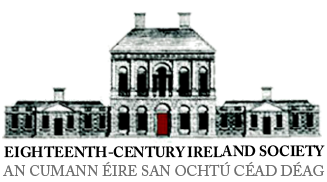I am a doctoral candidate in Irish Literature at the University of Vigo, Spain, with research interests that lie at the intersection of literature, feminism, and environmentalism. My Ph.D. project, entitled “An Ecofeminist Analysis of Eighteenth-Century Gothic Fiction Written by Irish Female Authors” aims to provide an ecofeminist approach to Irish Gothic Fiction, with a specific focus on female authors of the eighteenth century, namely Elizabeth Griffith, Regina Maria Roche and F.C. Patrick.
Favourite archive:
When considering archives, there’s absolutely no question for me: The British Library reigns supreme.
Favourite gallery/museum/heritage centre:
As a proud Galician, the Domus museum holds a special place in my heart, always bringing out my inner child and sparking joy with every visit. Venturing beyond Spain, however, my top picks would include the National Museum of Ireland, the Museum of Broken Relationships in Croatia, and, unsurprisingly, the British Museum.
Most exciting place/time period in the 18th century:
Dublin, 1770s.
Best online resource for 18th century:
Without a shadow of a doubt: The Eighteenth-Century Collections Online (ECCO).
Best book/history of 18th-century interest:
Based on my research interests, Christina Morin's The Gothic Novel in Ireland, c. 1760–1829.
What eighteenth-century figure would you most like to have a drink with?
Elizabeth Griffith.
What will you be talking about at the ECIS Annual Conference?
At the 2024 ECIS conference, I will delve into the remarkably favourable portrayal of the Irish landscape in Elizabeth Griffith’s Gothic novel, "The Story of Lady Juliana Harley" (1776). Against the backdrop of both Ireland and England, I'll demonstrate how Griffith's narrative challenges conventional tropes and stereotypes within the English Gothic tradition, presenting a nuanced depiction of Ireland that defies simplistic categorizations.

